We treat
Dizziness
Learn about dizziness and its discomfort
Dizziness
Dizziness is a fairly common symptom that will affect most people at some point in their lives. Many times, dizziness symptoms go away within a few hours or minutes, but in some cases, the dizziness persists. Up to 93% of dizziness consultations to the emergency room are due to ear stones (positional vertigo), a virus on the balance nerve or Meniere’s (a syndrome that affects the inner part of the ear).
Jump to section [Show]
Dizziness and the ear
Anatomically, the balance center and the ear are connected. These are connected by the eighth cranial nerve (the vestibulocochlear nerve). This nerve has two branches, the vestibular part (the sense of balance) and the cochlear part (hearing), which is why balance problems that are often associated with dizziness can be linked to hearing. Osteonordic deals with the investigation and treatment of problems related to the cranial nerves. CranioSacral Therapy is often a good treatment for these types of problems.
The balance nerve itself (the vestibulocochlear nerve) can also be affected by viruses, i.e. viruses on the balance nerve (vestibular neuritis), which is often caused by previous respiratory infections.
Nodules on the balance nerve (neuroma), Meniere’s disease, which is characterized by problems with pressure regulation in the ear, and a perilymphatic fistula in the ear can also occur.

Dizziness and the brain
Dizziness can also be related to different parts of the brain itself. The cerebrum, midbrain, and cerebellum all play, to a greater or lesser extent, a role in both maintaining balance and coordinating the senses and the body. Diseases of the brain such as cancer, stroke, and multiple sclerosis are rare but common causes of dizziness.
Other functional problems such as concussion, tinnitus, and whiplash can often be direct or indirect causes of dizziness.
Concussion and dizziness
After a concussion, depending on the size and severity, a hematoma (bleeding) may occur under the skull and between the meninges and the brain. This bleeding will in many cases disrupt the circulation and function of the centers that belong to the affected part of the brain. The brain is very complex, which is why many different centers belong to balance and coordination. If the blow itself was to the temporal part of the skull, i.e. the ear part of the skull, the balance nerve itself (vestibulocochlear nerve) may be directly affected or other parts of the inner ear.
Osteonordic uses specific osteopathic and craniosacral techniques to diagnose and treat these problems.
Tinnitus and dizziness
Tinnitus is a term for the ringing in the ear (tinnitus), i.e. that there are internal sounds in the ear even though the sense of hearing is not affected from the outside. Tinnitus is always an effect of the cochlear part of the vestibulocochlear nerve, which is why dizziness, which is the vestibular part of the nerve, is experienced in some cases. Tinnitus can occur after a blow to the head, after noise damage, after damage to the middle ear, or occur due to heredity.
Whiplash and dizziness
Many people suffer from whiplash each year. The neck and skull consist of many receptors and sensory organs (proprioceptors), which are severely stressed by the whiplash trauma. This can in many cases disrupt the signals from the nervous system to the senses, in this case hearing and balance.
Dizziness and viruses on the balance nerve or cochlea
Viruses on the balance nerve (vestibulocochlear nerve) can trigger dizziness. This nerve provides the fluid and balance centers inside the ear. The causes of viruses on the balance nerve are unknown. Osteonordic treats patients who suffer from dizziness caused by viruses on the balance nerve. Ear stones can also be the cause of dizziness.

Dizziness and nausea
Dizziness can sometimes provoke nausea. The reason for this can be diverse but the most common reasons are that the vagus nerve (digestive nerve) can often be affected if the balance nerve (vestibulocochlear nerve) is not functioning optimally due to their close location in the brain. Other causes can be increased pressure in the brain which will always trigger various neurological problems that often result in nausea.
Dizziness and fatigue
The brain is the organ that receives the largest amount of blood. Dizziness is a massive problem for the brain and its underlying systems as the brain has to work at high pressure to compensate for poor proprioceptive (sense of touch) and neurological input.
Therefore, the body will strive to ensure that the brain receives the amount of blood and energy it needs to solve the problem.
Headache and dizziness
Headaches are a frequent after-effect and/or cause of dizziness, especially if blood pressure in the body in general or locally in the head is too high. Headaches and dizziness often occur in connection with head trauma, whiplash, or neck-related disorders.
Metabolism and dizziness
Metabolism can play a huge role in the development and maintenance of dizziness.
The thyroid gland and the hormone thyroxine are directly involved in the body’s energy metabolism, which is why fatigue and dizziness are associated with metabolic problems.
Metabolism also participates directly and indirectly in the production of many hormones hierarchically controlled from the brain, specifically the pituitary gland and hypothalamus. This connection and influence can go from the pituitary gland to local hormone-producing glands and organs and vice versa.
Blood pressure, circulation and dizziness
Blood pressure is controlled by the body’s autonomic nervous system and higher centers in the brain. Blood pressure is regulated through a feedback system that uses local receptors in the blood system. These receptors are located in the carotid artery near the heart, in the artery in the neck, and in veins behind the eye. This location is very close to and in the area of all blood vessels that carry blood to the brain, which is why blood pressure and circulation are one of the most common causes of dizziness.
Dizziness in the morning
Many people experience dizziness in the morning which either improves as they get into the day or persists. This type of dizziness can be caused by nutrition, digestion and/or blood pressure. In other cases, dizziness can be caused by neck tension or neck locking, especially if you are used to sleeping on your stomach.
What triggers dizziness?
There are countless reasons for the development of dizziness. Often, dizziness cannot be caused by one specific cause but by many different factors that lead to dizziness. The factors below are some of the most common triggers for dizziness.

Stress triggers dizziness
Stress, both mental and physical, affects the circulatory system, causing blood pressure to generally rise, especially to the brain. Stress is triggered when the body’s autonomic nervous system goes into fight/flight mode, which is the body’s way of dealing with danger and stressful situations.
This effect causes blood vessels to skeletal muscles and the brain to dilate and blood vessels to the internal organs and digestion to constrict.
This mechanism will therefore often increase pressure locally in the brain, resulting in dizziness.
Neck pain and dizziness
Neck pain such as neck stiffness, herniated disc in the neck, and osteoarthritis in the neck can all affect the development of dizziness as the blood vessels that supply the brain with blood and oxygen pass through the neck and throat.
Muscle tension and dizziness
Tensions in muscles, tendons and connective tissue that attach to the skull or in the area can trigger tension headaches and dizziness. This form often occurs due to poor posture, incorrect body positions, neck tension, etc.
Dizziness when you stand up
When you stand up too quickly, your blood pressure changes and this can put a strain on your circulation. The pressure in your head can therefore drop too quickly, resulting in dizziness, blackness in your eyes, etc. In some cases, this dizziness can persist.
Osteopathic approach to dizziness
Dizziness is not always caused by a local problem in the ear or in the skull and neck.
In many cases, we at Osteonordic find that dizziness is simply a result of many influences on the body that have been going on for a long time.
Therefore, we spend time on a proper review of the medical history and thorough examination before the diagnosis is made and the treatment course is initiated. In some cases, this may mean that the therapist removes the body’s biggest problems around the body while spending time on local problems in the neck and skull. Osteopathy always strives to optimize the body’s own self-healing mechanism, i.e. to optimize the body’s circulation (blood circulation), nerve supply and mobility of connective tissue and joints. Aarhus Osteopathy offers a physiotherapist specializing in dizziness in all our departments.

Often related problems
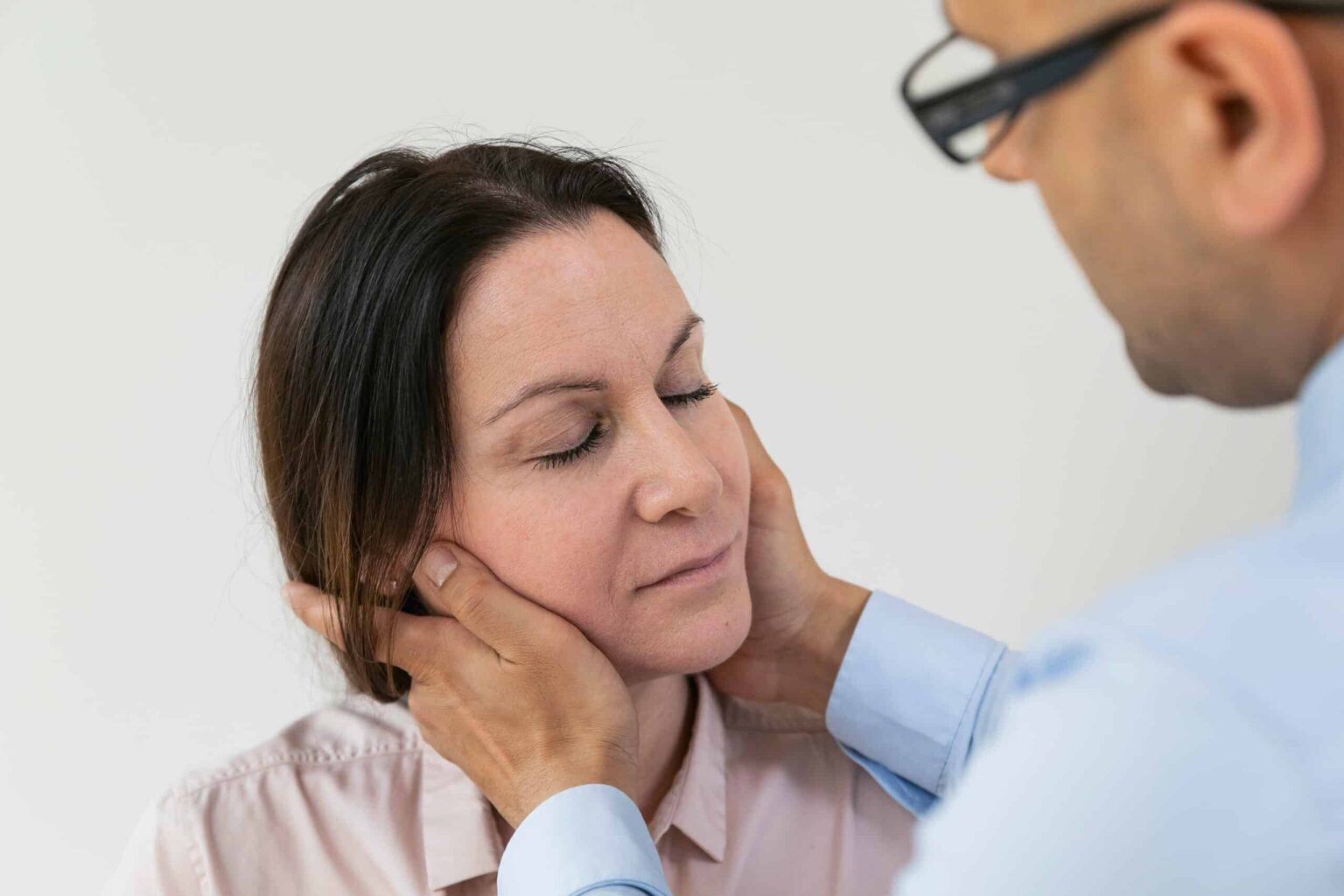
Jaw joint pain
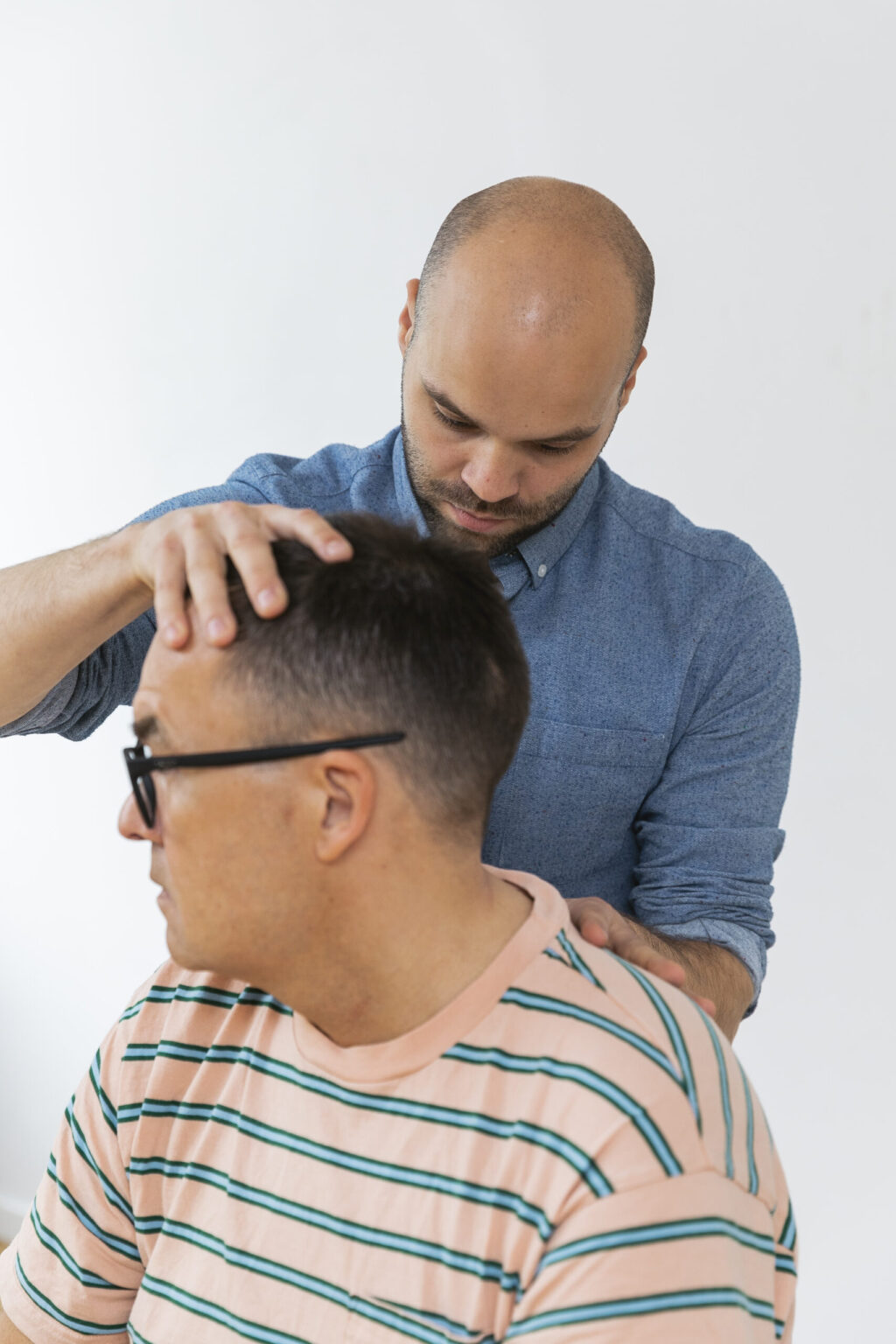
Brain hemorrhage
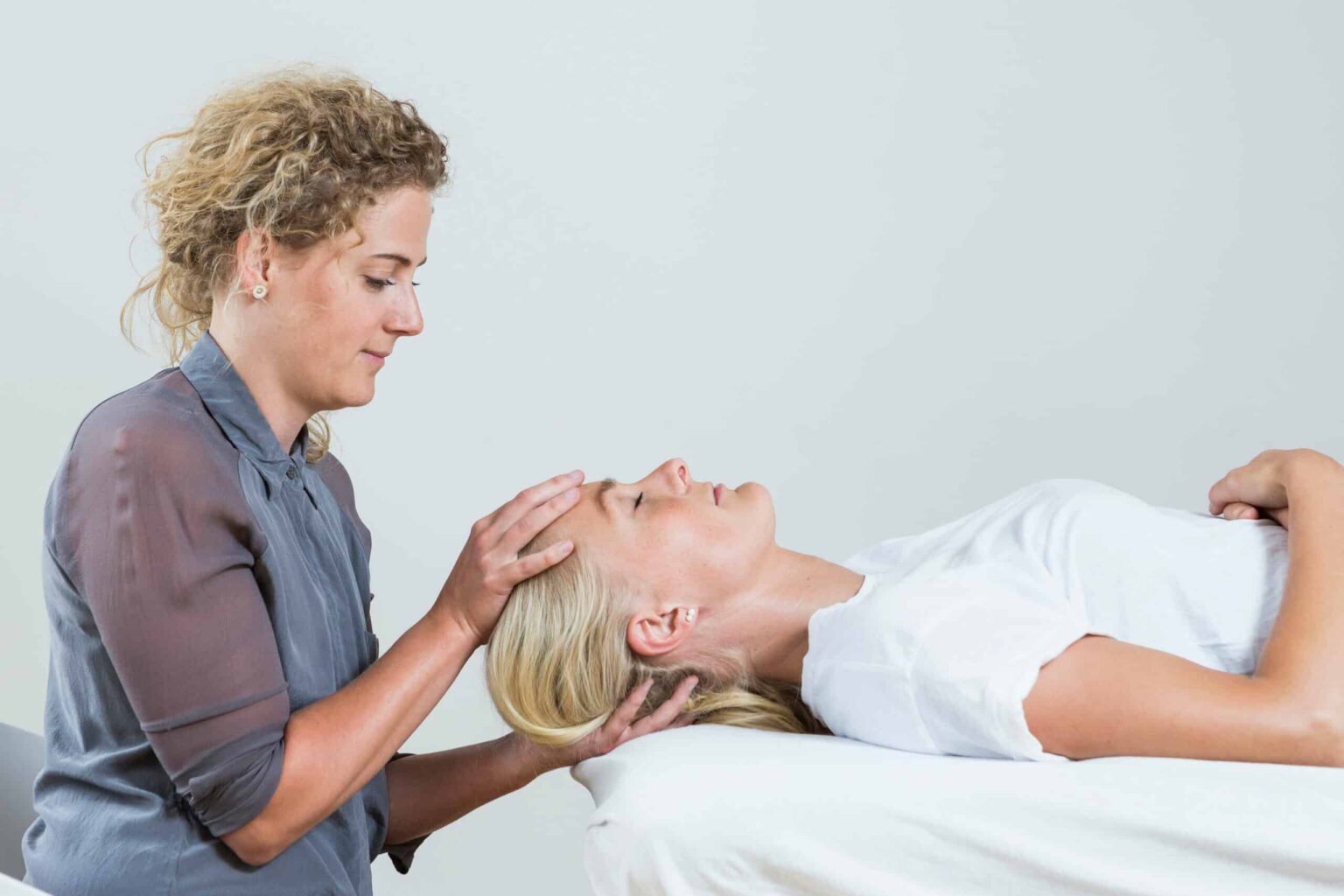
Post-traumatic headache
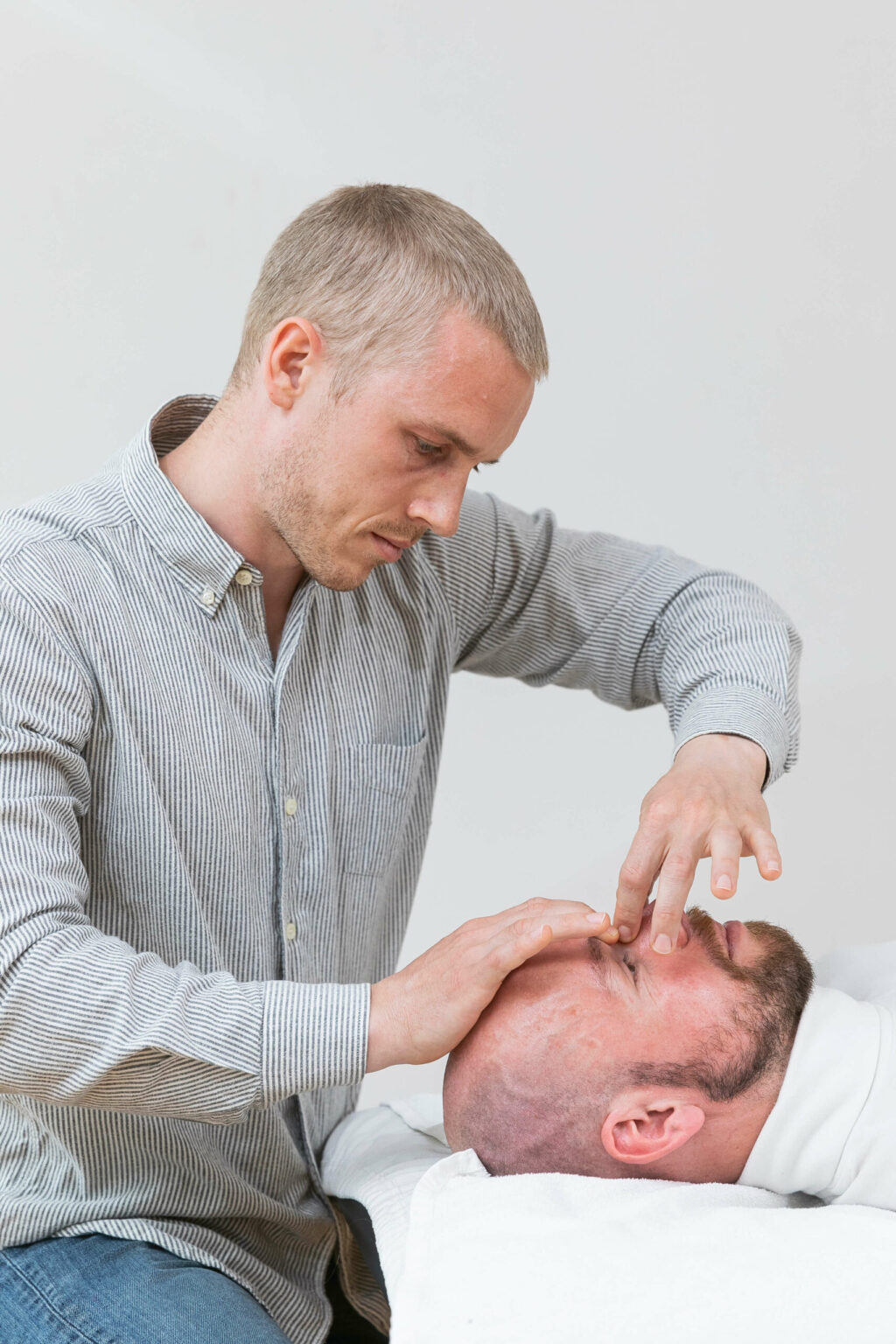
Sinusitis

Tinnitus
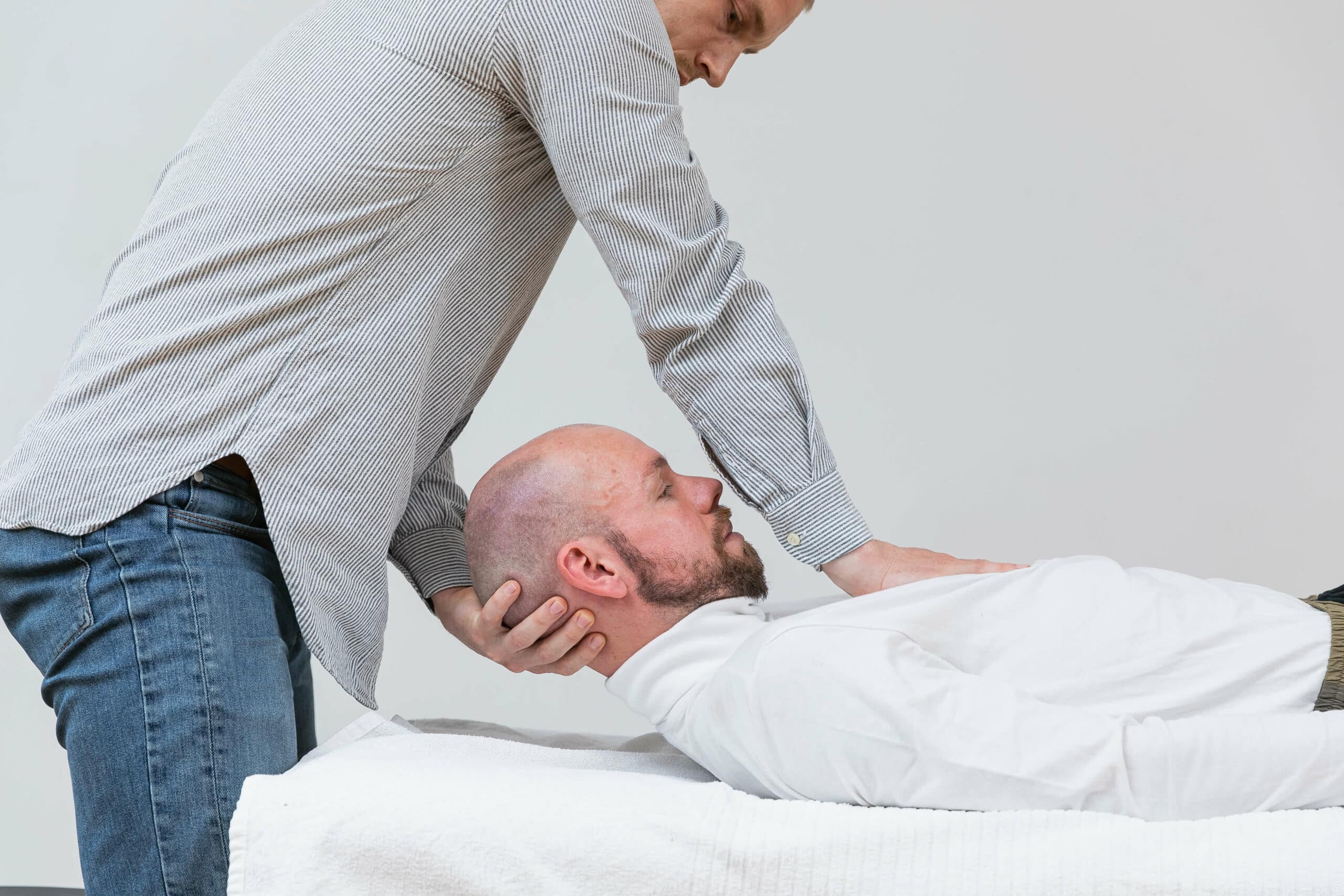
Vestibular dysfunction

Maxillary sinusitis

